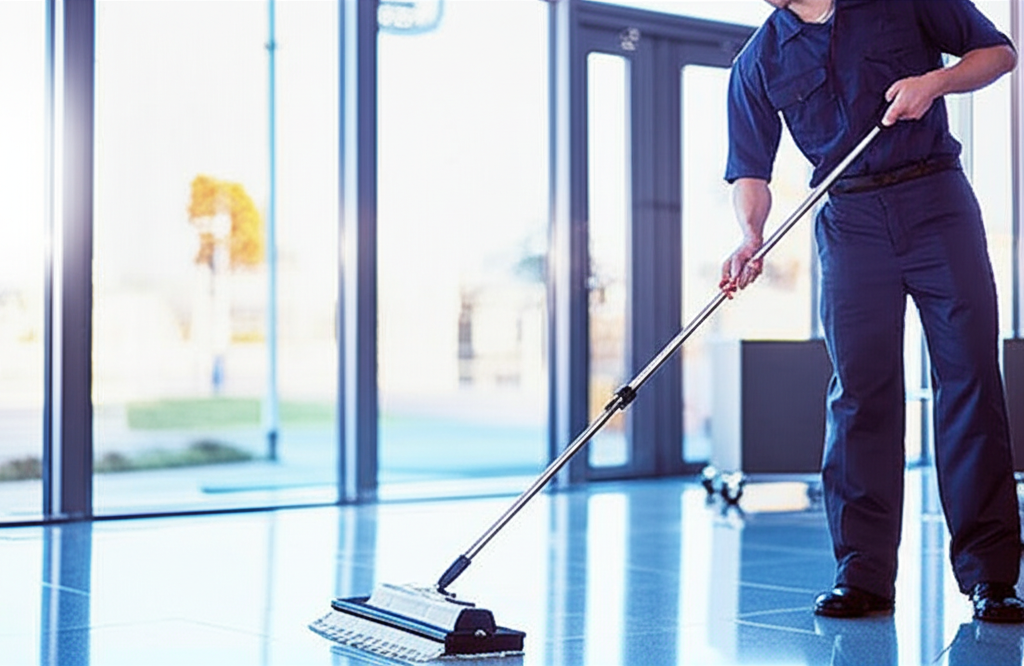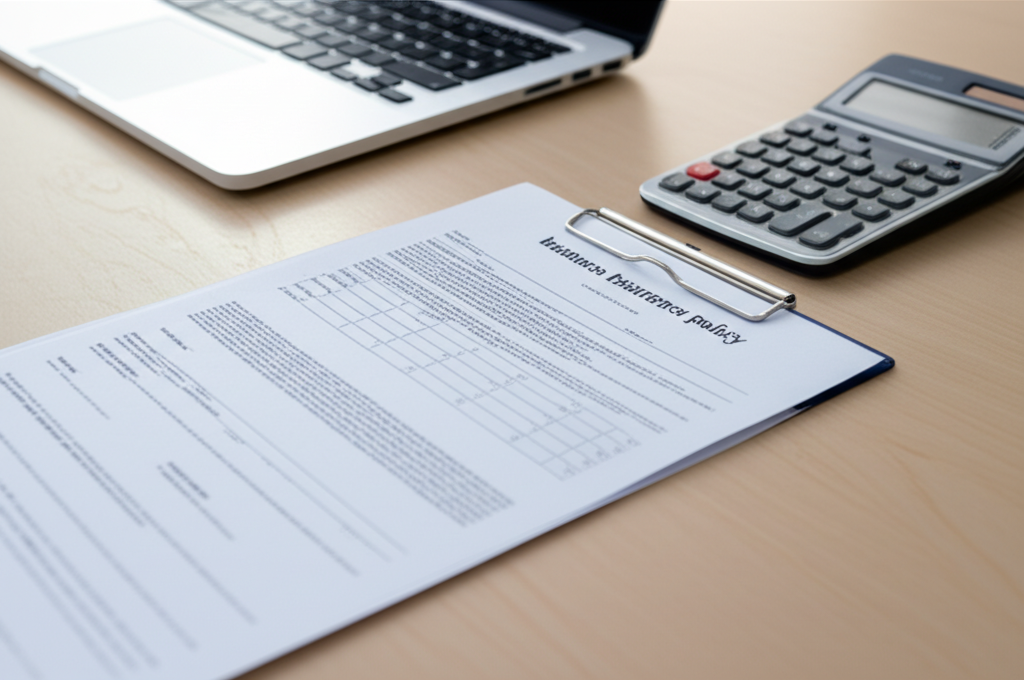
Table of Contents
Introduction
Running a janitorial service business comes with its own unique set of challenges and risks. What if an accident occurs on a client’s property during a routine cleaning? How do you protect your business from costly lawsuits or damage claims? These are critical questions every janitorial service owner must consider. Insurance coverage acts as a vital safety net, shielding your business from unforeseen liabilities and giving you peace of mind to focus on growth and service quality.
Janitorial services play a fundamental role in maintaining clean, safe, and hygienic environments for both commercial and residential clients. However, the nature of cleaning work involves physical labor, the use of specialized equipment, and potential exposure to hazards like slips, falls, or damage to property. According to industry studies, workplace injuries are common in cleaning occupations, making it essential to have comprehensive insurance coverage. Besides protecting your employees, insurance secures your assets and reputation against unexpected claims that could otherwise cripple your operations financially.
Many janitorial companies start as small ventures but grow quickly, expanding their workforce, adding vehicles, and servicing multiple locations. This growth naturally increases risk exposure and legal obligations. Understanding and managing these risks early on is crucial to sustaining your business long-term. If you’re new to the world of insurance, it’s helpful to begin with the basics. For instance, learning insurance basics can empower you to make informed decisions about the types and amounts of coverage suitable for your janitorial service.
Not all insurance policies are created equal, and the right selection depends on various factors including business size, services offered, and applicable legal mandates. Many janitorial service owners also wonder about types of insurance available to protect against different risks, from general liability to bonding insurance. Exploring these options can help you build a tailored insurance portfolio that covers all critical facets of your operations.
What You’ll Learn in This Guide
This guide provides a comprehensive overview of insurance tailored specifically for janitorial services. Whether you’re just starting or looking to review your coverage, you’ll gain valuable insights that help protect your business and employees effectively. Here’s what we will cover:
- Understanding Essential Insurance Types: We explain the key insurance policies important for janitorial businesses, including general liability, workers’ compensation, commercial auto, and bonding insurance. You’ll learn what each covers and why it matters.
- Determining Coverage Needs: Discover the factors that influence insurance requirements such as your business size, scope of work, risk exposure, and legal regulations. This will help you evaluate the right levels of coverage needed.
- Analyzing Insurance Costs: Gain insight into what drives insurance premiums for janitorial services and typical cost ranges. Understanding these will help you budget appropriately and find cost-effective solutions.
- Choosing the Right Provider: Learn practical tips on selecting a reputable insurance provider who meets your business needs, balancing coverage options, customer service, and price.
To start, we’ll delve into the different types of insurance commonly recommended for janitorial companies, highlighting their unique advantages. Then, we’ll explore how coverage needs evolve based on business dynamics and specific cleaning service risks. This foundational understanding will equip you to navigate insurance costs with confidence while avoiding common pitfalls.
Later, we’ll provide actionable advice on evaluating insurance providers so you can find trustworthy support during your claims process and beyond. Ultimately, this guide is designed to not only protect your janitorial business but also enable it to thrive through strategic risk management.
As you read on, imagine having the assurance that your business operations, employees, and clients are safeguarded against unexpected disruptions. Proper insurance is more than a legal formality—it’s a competitive advantage that helps build client trust and opens doors to larger contracts. Now, let’s explore the world of janitorial service insurance in detail and uncover the critical aspects you need to know to secure your business future.

Building on the introduction to the necessity of insurance coverage for janitorial services, it is crucial to delve deeper into the types of insurance policies that specifically cater to this industry and the factors that influence which types and amounts of coverage businesses should obtain. Understanding your insurance needs not only protects your janitorial business from unexpected liabilities but also builds trust with clients and supports long-term operational stability. As janitorial work involves various risks from bodily injuries to property damage, tailored insurance policies are vital. This discussion explores the key insurance types janitorial services require and the critical considerations for adequate coverage.
Types of Insurance Essential for Janitorial Services
For janitorial businesses, securing the right insurance coverage is fundamental to mitigating risks inherent in their daily operations. General Liability Insurance is a cornerstone policy that protects businesses from claims related to property damage or bodily injury suffered by clients or visitors during cleaning activities. Workers’ Compensation Insurance functions as a safeguard for employees, covering medical expenses and lost wages if they are injured on the job. Since janitorial workers often use company vehicles or transport equipment between sites, Commercial Auto Insurance is essential to protect against accidents and liability involving those vehicles. Another valuable type of coverage is Bonding Insurance, which shields clients against theft or damage caused by employees, effectively building trust and credibility for the service provider. To fully grasp this concept, it helps to understand types of insurance first.
Choosing the right insurance mix depends on the unique risks your janitorial services face, which vary by business size, the scope of services, and regulatory requirements. For example, while a small residential cleaning business may require basic liability and bonding insurance, a larger commercial operation might also need specialized coverage for hazardous materials or equipment. Comprehensive coverage not only protects your business assets but can also be a decisive factor for clients when selecting a service provider. Many insurance providers offer tailored packages to meet these needs, helping janitorial businesses balance cost and risk effectively.
Key Aspects of Janitorial Insurance Types
Understanding the core insurance types and their benefits enables janitorial businesses to adequately protect themselves. Here are the key points to consider about each:
- General Liability Insurance: Provides protection against lawsuits arising from bodily injuries or property damage caused during operations. It covers medical costs, legal fees, and settlements, ensuring the business can withstand claims without financial hardship.
- Workers’ Compensation Insurance: Covers employee injuries sustained while working, including medical treatments and wage replacement. This insurance is often mandatory for businesses with employees, reducing potential legal exposure and supporting worker welfare.
- Commercial Auto Insurance: Protects company-owned or used vehicles from accidents, theft, or damages while in use for business purposes. This is crucial as transportation is a substantial part of janitorial services.
- Bonding Insurance: Acts as a guarantee for clients against dishonest acts such as theft by employees. It serves as a trust-building tool, giving clients confidence in the integrity of the janitorial business.
Coverage Needs and Factors Affecting Insurance Requirements
Beyond understanding the types of insurance available, janitorial business owners must evaluate specific factors that influence their coverage needs. Business size and scope play a major role—larger teams and multiple service locations typically require more extensive coverage, while specialized cleaning services, such as hazardous waste cleaning, demand additional protections. Risk exposure, including the nature of the work environment and claims history, further impacts policy selection and premium costs. Additionally, compliance with legal requirements at state and local levels is a non-negotiable factor to ensure lawful operation and avoid penalties. To get a comprehensive overview of regulations impacting insurance, see insurance regulations.
Thoroughly assessing these variables helps determine not just what coverage to purchase, but also the appropriate coverage limits and deductible levels. For instance, a janitorial company servicing high-risk industrial sites might need higher liability limits than one focusing on residential cleaning. Similarly, firms with a history of insurance claims may face different underwriting terms and premium rates. Staying informed about both industry standards and client demands ensures janitorial businesses remain competitive and protected while maintaining profitability.
Important Considerations for Insurance Coverage
Selecting insurance coverage involves a careful examination of multiple influencing factors to match the unique needs of the janitorial service. The following points outline the primary considerations:
- Business Size and Scope: The number of employees and service areas directly affect insurance needs. Larger operations generally face more varied risks and require broader coverage. Additionally, the diversity of services offered—such as residential, commercial, or specialized cleaning—alters the risk profile and thus influences policy types and amounts.
- Risk Exposure: Janitorial tasks can expose workers and clients to risks like slip-and-fall accidents, chemical exposure, and equipment-related injuries. A thorough understanding of these hazards and any past insurance claims is critical for selecting appropriate protections and negotiating premiums.
- Legal Requirements: Insurance mandates vary by jurisdiction and industry standards. Knowing the specific legal obligations for liability, workers’ compensation, and bonding is essential to avoid fines and maintain operational legitimacy. Client contracts may also impose insurance conditions that exceed regulatory requirements.
- Claims History and Experience: A business with frequent claims may face higher premiums or different coverage restrictions. Proactively managing risks, documenting safety protocols, and maintaining a clean claims record can favorably impact insurance terms.



